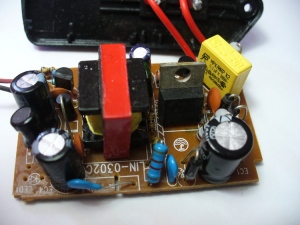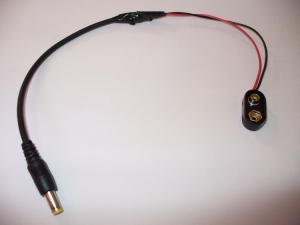13
Don’t buy a cheap plugpack…
ebay, education, learning electronics, plugpack, repair, voltage converter, wall wart Comments Off on Don’t buy a cheap plugpack…
Hello readers
Now and again in the quest to save money, or to buy something that you need when you are short on cash, you inevitably end up trawling through eBay for what you need. Last month I needed some 20V DC 1 amp plugpacks to test my bbboost prototypes with, so naturally after scoping out retail prices eBay found itself on my web browser. Considering a local alternative costs $38, it was worth a shot. As these were for ‘internal use only’, that is for myself and nobody else, it is ok for me to buy the cheaper option. Well it used to be.
These suckers were found for $5.20 delivered from Taiwan…
No C-Tick or electrical authority approvals on this plug pack…
The first problem was the plug – these were advertised as having Australian plugs, however it was the US-style with adaptor. Naturally the adaptor didn’t fit, and I had to disassemble and rearrange the contacts inside for it to accept the flat pins. Second problem was the heat – this little monkey would run hot, even without a load. I asked it for around half an ampere and it really cooked. Ouch!
In the words of Dave Jones – “it’s a piece of sh*t!”
So what else was there to do? Wait for it to cool down, and pull it apart!
Wow – what a mess. Even through the electrolytic capacitors looked normal, there was a layer of brown, rusty goop all over the back of the 2n60C MOSFET. Where did that come from? The mind boggles. Everything else looked normal, the PCB was soldered nicely and the capacitors weren’t bulging or leaking. There were holes for a 1k0 resistor and an LED, but they were unused. What else to do? I cut the DC lead from the housing and soldered a 9v PP3 battery snap on the end – perfect for using an Arduino away from the desk for prototype testing…
So the exercise was a not a total waste… the DC plug is worth $2 locally, and the wire was probably worth about fifty cents. The plastic housing might be useful later on.
From now on I think it will pay to fork out for an approved, locally-sourced adaptor. No more eBay! So remember, quality is remembered long after price is forgotten.
High resolution photos are available on flickr.
As always, thank you for reading and I look forward to your comments and so on. Please subscribe using one of the methods at the top-right of this web page to receive updates on new posts!







